I spent the second half of April in China, not long after Trump’s ‘Liberation Day’. I interrogated a number of exporters about the tariffs, and in general the feeling was: these tariffs can’t last. Almost always, they cited three months as how long they give Trump for some kind of U-turn. That’s the average amount of time it takes for a Chinese product to reach American shelves.
In the end, it only took six weeks. I write in my first column for The Times, out this week, about the conversation I had with ‘the hat king’, a textiles manufacturer with six factories globally. Here’s a little extract:
Mao is just the kind of canny Chinese businessman that Trump is out to thwart. His empire consists of six factories, mainly producing high-end baseball-style caps for American football and Formula 1 teams (he’s done Maga merch too but says those orders mostly go to lower-quality suppliers in Yiwu, China’s export capital). Business has been good. When we met for lunch in an elegant Suzhou restaurant last month Mao wore a jade pendant the size of a plum and held court with a dozen business acolytes (they are the ones who call him “king”).
Mao’s bravado was echoed by other exporters I came across in China last month. I wondered if they weren’t all in denial. Did they not understand the seriousness of Trump’s intent to repatriate jobs to America? Could a trade war really fizzle out so quickly? Beijing’s own reaction had made things much worse for Chinese companies in a matter of days, bidding the tariffs up to 145 per cent. What could your average Chinese merchant do but hope for a better world in three months’ time?
It turns out that it wasn’t just wishful thinking – these exporters had a keen sense for how much their American clients and the American government in general could stomach. As I write, the trade war hasn’t been painless for China and this is only the first battle, but it does look as if Trump blinked first.
While there, I also asked my family to take me back to their roots. The reason being that I will be featuring them in my upcoming book.
Published by Harper Collins, I will be looking at the compromises and loopholes that ordinary people have to make and make use of, as a part of navigating life in the PRC. Chinese political power isn’t a straightforward, black-and-white system. There are many grey areas, where ordinary people can try to get the system to work for them. They don’t always succeed, but they might have better chances than you think.
The book will open with my grandma, whose family arranged her marriage to my grandfather because he worked on a state-owned farm, and so would always have access to food. The year was 1960. This marriage would save the lives of her parents and siblings once the Famine struck.
It was also on the farm that my grandparents weathered the Cultural Revolution and raised my mother and her two siblings. Through these years, they had to retain a pragmatic cynicism towards authority – never bending to it unthinkingly, but always enough to survive.
The farm went into decline after the economy started liberalising, and today is mostly built over by new industrial parks, the rest derelict.
But this was where my mother and her siblings had spent their childhood (and I even spent a few summers here). My aunt – my mother’s sister – reminisced how they’d planted these dawn redwoods when they were children – the saplings were just a little taller than them. Now they’re fully grown, but the farm is no longer there.
The book will also feature the stories of other people and other families. I hope to pull together a portrait of China since 1949, and show how ordinary Chinese have taken power into their own hands in dealing with an extraordinary political system.
And of course, it wasn’t all work. The highlight of my trip was stumbling across these three 1,500 year old ginkgo trees, planted in a temple courtyard by a Liang dynasty prince in the early 6th century. It made me reflect on China’s understanding of itself as an ancient nation. Arguably much of what came before isn’t the same as what we understand to be ‘China’ today, but Chinese national identity is still bound up in the idea of its ‘5,000 years of history’. I wonder how much this colours the way the Chinese see America, a nation that’s only been around for a sixth of the lives of these trees.
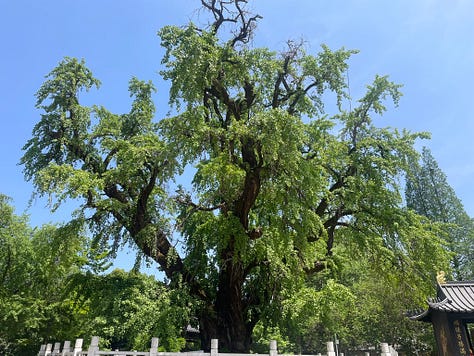
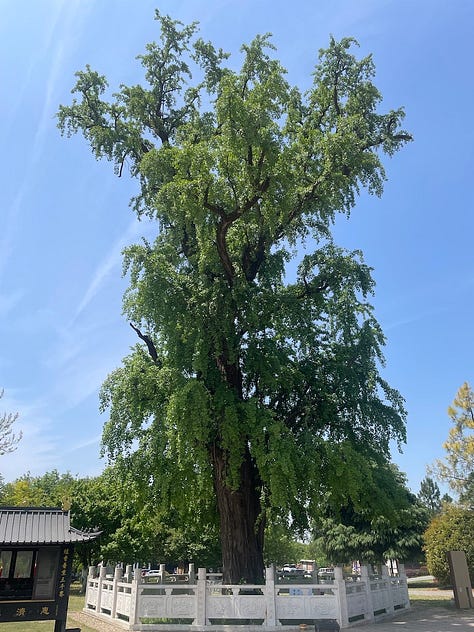
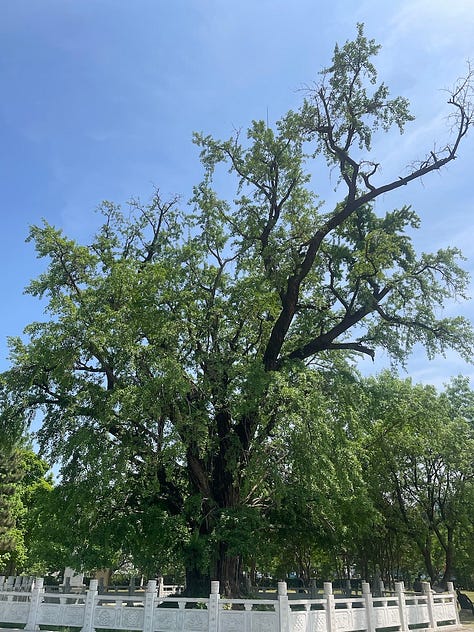
I posted more pictures from the trip on X: of the interesting, the weird, and the beautiful.




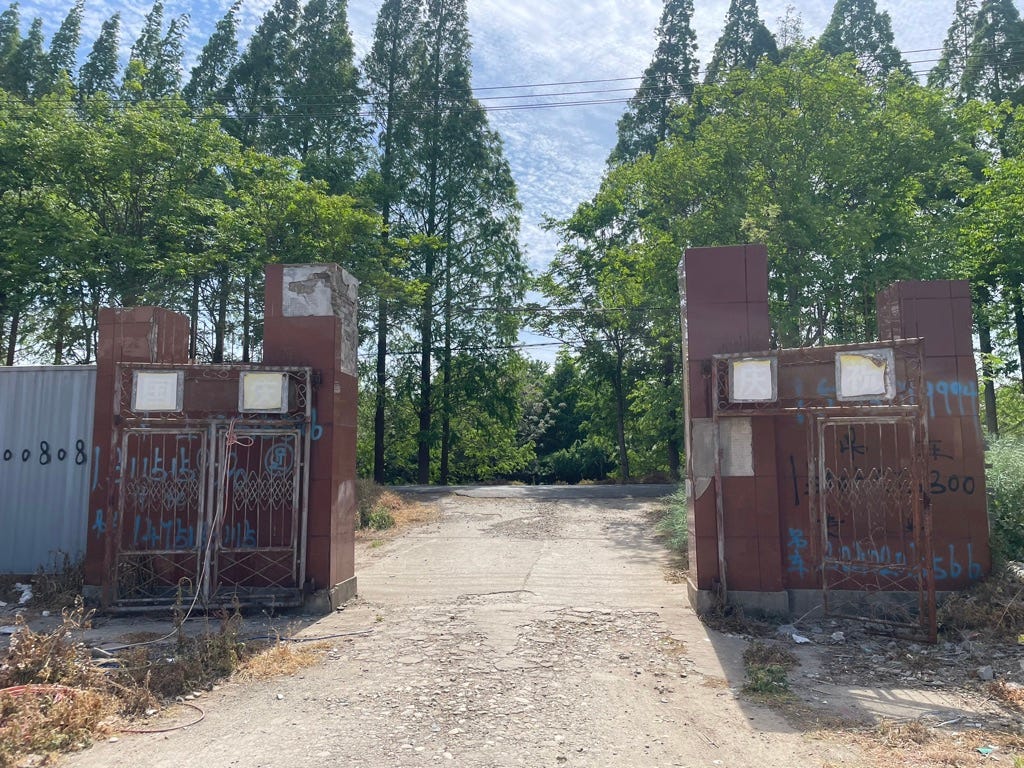
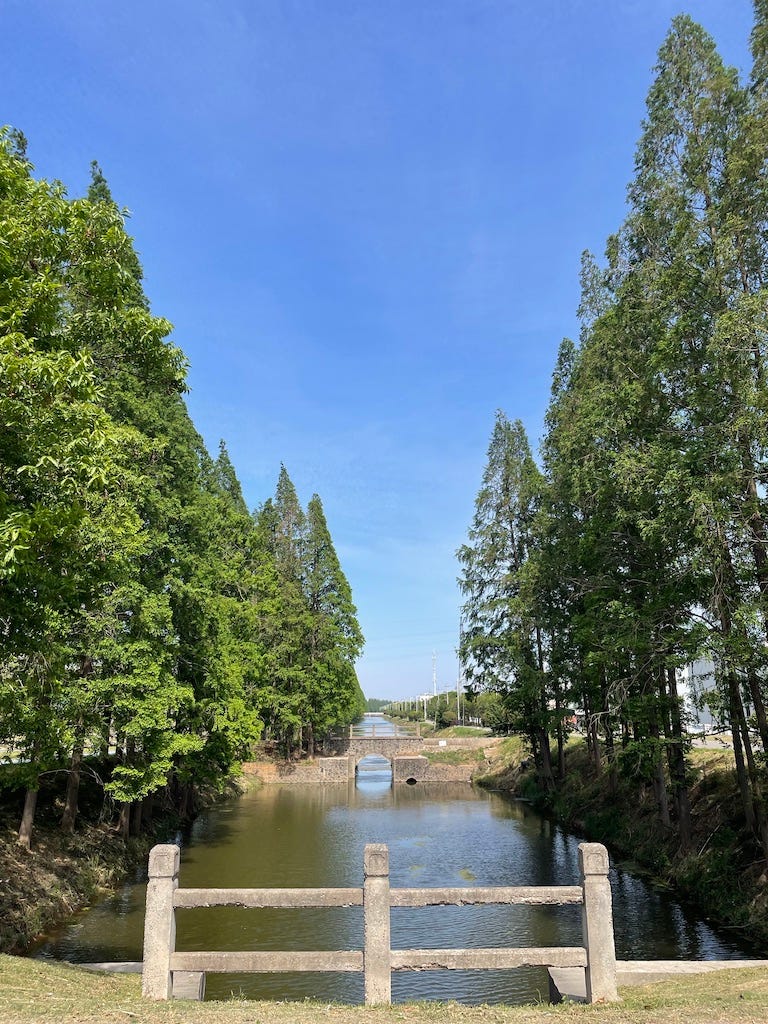
I've alway been puzzled by the 5000 years of Chinese history notion, not least of all because it seems to be almost universally accepted, and not just in China. I once asked a UK academic who had used the phrase approvingly, who exactly the king of China was in 3000 BC. Even the legendary Yao and Shun do not go back quite so far.
Thanks Cindy. Great Times article!